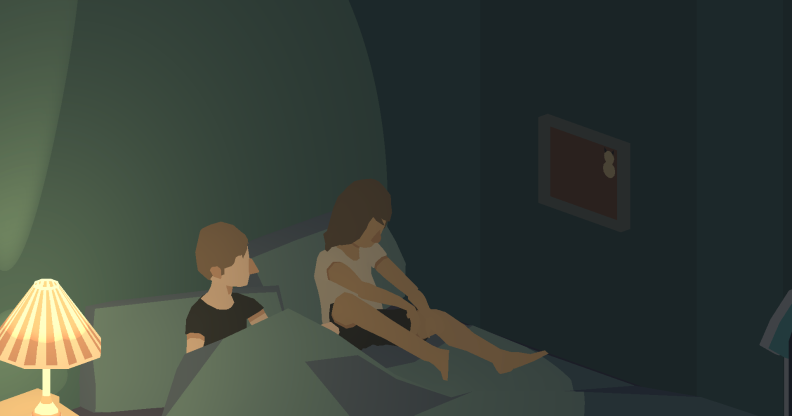Evocative indie game No Longer Home offers an honest view of non-binary identities

No Longer Home. (Humble Grove)
Moving house is an event most of us will do in our lives. But No Longer Home taps into a particular time: leaving university.
Ao and Bo are both non-binary and finishing their final year of art degrees at university in London. They’re preparing for the imminent change in their lives, not least because Ao is soon to move back to their family in Japan.
The game explores all the existential crises that come with this time of life. What jobs will they move to? Where will they live? Will they maintain their friendships? And, being non-binary folk, will the world accept them for who they are?
Story vignettes are shown in an isometric view as you play as both characters, manoeuvring them around the diorama-like environments of their London home.
In fact, the game is very much rooted in urban British life with its various references to gentrified London and a certain emo, bohemian lifestyle. These students may not live in the best area or in the best flat, but they get by with the support of their friends who visit for regular barbecues.
Together they reminisce about the past and share their anxiety about the future and what it holds. These drifting characters need a focus, a project, as they strive to discover what’s their purpose in life, their “thing”.

No Longer Home. (Humble Grove)
It’s that balance between support and anxiety that really forms the narrative of No Longer Home. One scene sees the group of friends collaborating to complete a (very surreal) video game late into the night – something many gamers will relate to.
Another pivotal scene has Ao and Bo discussing the future and potential lack of acceptance. “Why does everything have to be binary?” questions Ao, specifically referring to the gendered roles of the life in Japan they must return to. These characters are not only growing out of London, but wanting to break out of the rigid norms of society.
It’s a game that’s full of characterisation over drama or action. With its muted colours and evocative soundscapes, there’s an ominous feel to it all. Even moments of positivity and honesty are undermined by restless fear.
For some the plodding pace and lack of gameplay will be too slow; for others the slow-motion roll of the story will be thoughtful and mesmerising. There’s a timelessness to No Longer Home, as if clinging on to a moment in time you don’t want to end.
Either way, this short semi-autobiographical indie title from a team of two should be applauded for its honest depiction of non-binary identities.
No Longer Home is available now on PC via Steam.
For more gaming news, follow Gaymeo on Facebook and Twitter. You can also email us with any news or tips on [email protected]

